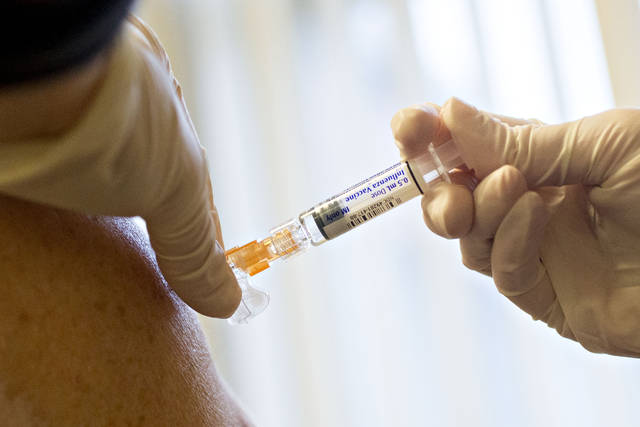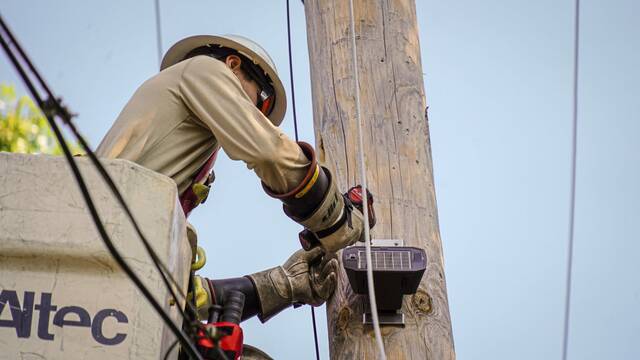Don’t let the calendar or warmer temperature fool you: influenza season is far from over.
According to a study by the University of Pittsburgh School of Medicine, flu season, which can last until May, peaks after mid-winter. So far this flu season, over 62,500 flu cases have been reported across Pennsylvania with over 75 flu related deaths, according to the state Department of Health.
As flu season progresses, protection offered by the flu vaccine wanes, the Pitt study shows.
So when’s the best time to get a flu shot?
The study, which focused on when older adults should get vaccinated, concluded that if older people wait until the start of flu season in October to get their shots, “tens of thousands of influenza cases and hundreds of death can likely be avoided.”
People age 50 and older made up the majority of flu-related deaths this flu season, according to the state health department.
Allegheny County accounts for six of the flu deaths so far this season, down from 25 last year. Westmoreland County does not keep track of flu-related deaths, according to Coroner Kenneth Bacha.
This year, almost 1,780 flu cases reported in Westmoreland County, compared to 4,875 reported cases in Allegheny County, state health department figures show.
But it’s not always cut-and-dry on when to get vaccinated.
Flu season peaks early about once every four seasons, meaning if older adults wait to get vaccinated “dozens to hundreds of adults would die” because they wouldn’t have gotten vaccinated in time, the study reported.
Waiting until the start of flu season to get vaccinated saved almost 260 lives and prevented almost 22,060 flu cases, compared to receiving the vaccine around August, previous Pitt studies showed.
“There’s controversy in the public health community over whether influenza vaccination should happen as soon as the vaccine becomes available in August, or if it’s better to wait until later in the fall,” Kenneth Smith, a Pitt professor of medicine and clinical and transnational science, said in a statement. “What we’ve found is that it’s a balancing act, but if a clinician believes a patient will return for vaccination in the fall, then our analysis shows that it is best if they advise that patient to wait.”
Working with a doctor to find the best time to get a flu shot individually will help stop the spread of the flu, according to the study.
“In all scenarios, simply getting vaccinated is the best way to avoid the flu,” Smith said. “If the choice is between getting the influenza immunization early or not getting it at all, getting it early is definitely better.”








